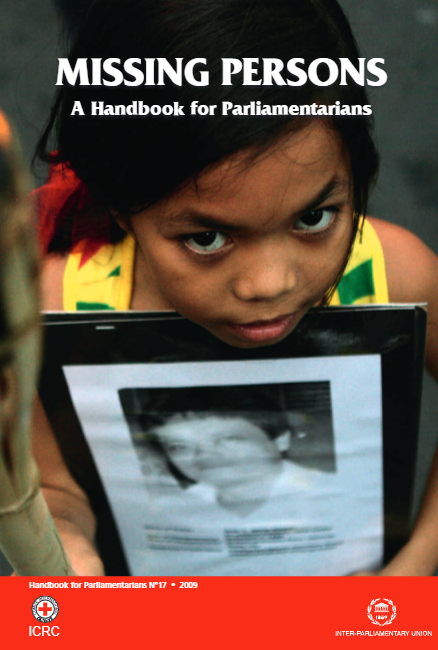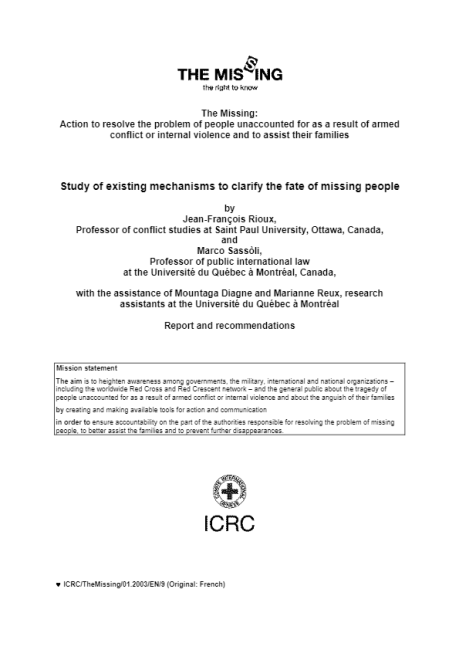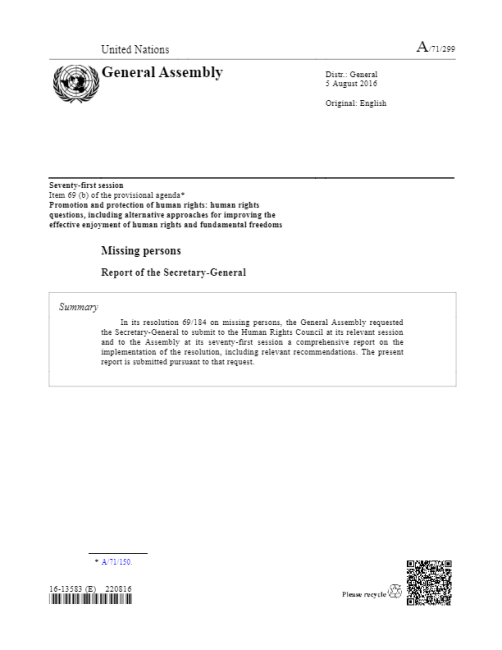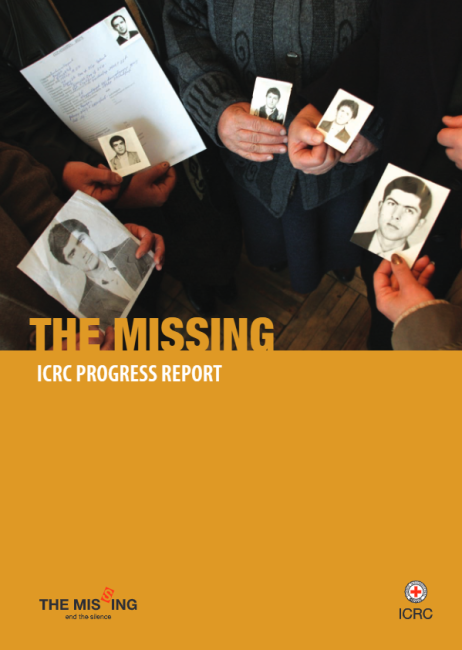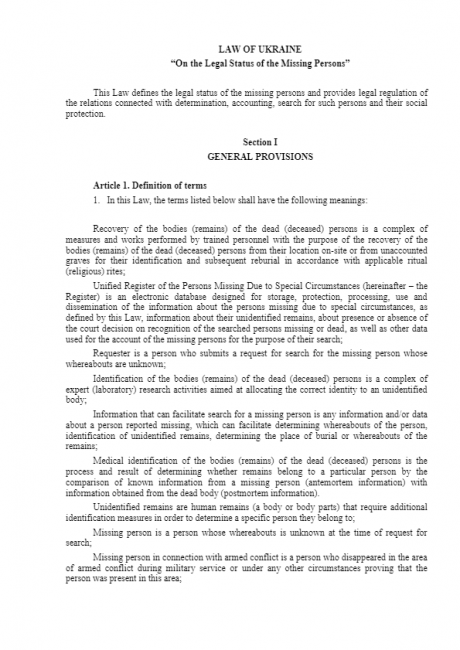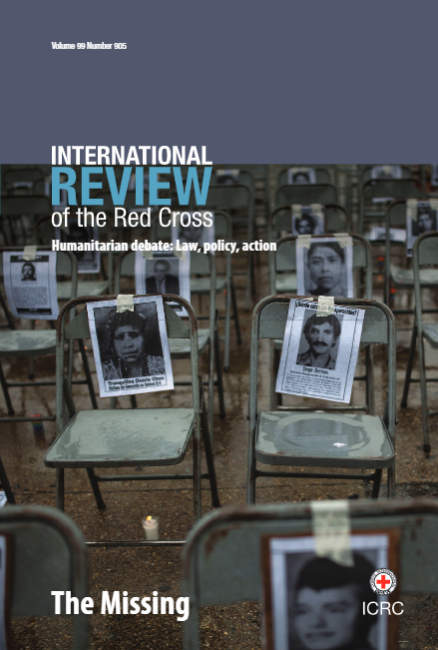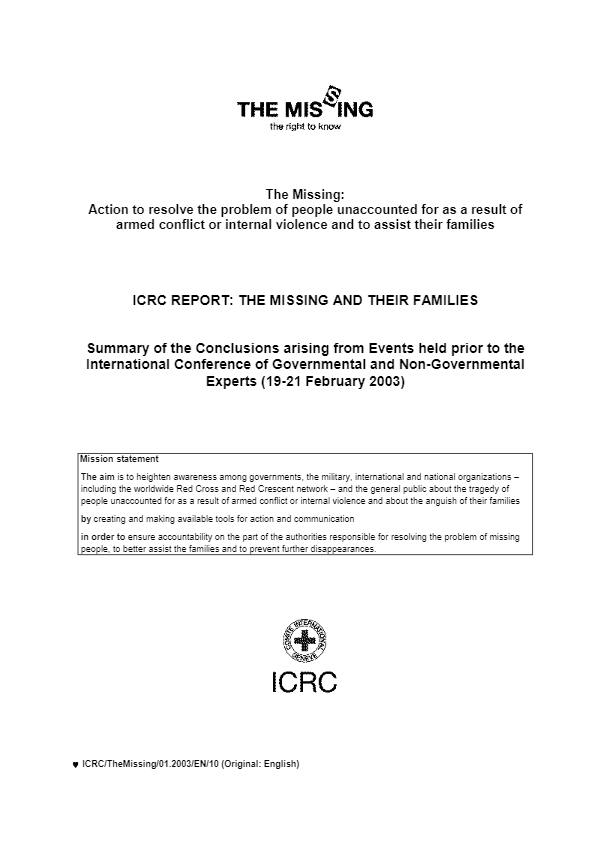
ICRC Report: The Missing and their families. Summary of the Conclusions arising from Events held prior to the International Conference of Governmental and Non-Governmental Experts (19-21 February 2003)
In cooperation with government representatives, other components of the International Red Cross and Red Crescent Movement, international, regional and national governmental and non-governmental organizations, representatives of families of missing persons and a variety of experts, the ICRC launched a process aimed at addressing the plight of people who are unaccounted for as a result of armed conflict or internal violence and of their relatives.
The ICRC's objectives in launching this process in cooperation with all those involved in dealing with the issue are to:
(a) review all methods of preventing persons from becoming unaccounted for in armed conflict or internal violence and of responding to the needs of families that have lost contact with their relatives;
(b) agree on common and complementary recommendations and operational practices with all those working to prevent persons from becoming unaccounted for and to respond appropriately when people are missing as a result of armed conflict or internal violence;
(c) heighten concern about the issue among State authorities, the United Nations and non-governmental organizations.
The ICRC decided to carry out this process in two initial stages. The first, which took place between February and mid-December 2002, included three studies entrusted to research institutes, two electronic workshops and six workshops for governmental and non-governmental experts. These events covered the traditional practices and activities of protection work and restoring family links, the management of human remains, support for the families of missing persons, the collection and management of personal data, and mechanisms for handling cases of missing persons. For each topic, needs and how to meet them were pinpointed, constraints identified, and recommendations and best practices produced. Approximately 120 experts contributed in one way or another to these events. A report is available on each one. For the second stage of the process, the ICRC has convened governmental and non-governmental experts to an international conference that took place from 19 to 21 February 2003 in Geneva.
The objective of this report is to summarize for the conference the results of the events that took place during the first stage of the process. The report was drawn up under the ICRC’s responsibility in two phases, the experts who took part in the first stage of the process having been invited to comment on an initial draft version in October and November 2002. Except for chapter XII, the present report does not necessarily represent the ICRC position.


